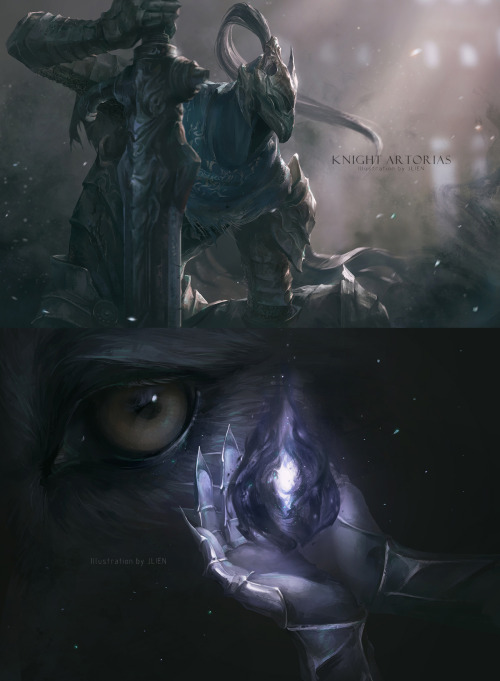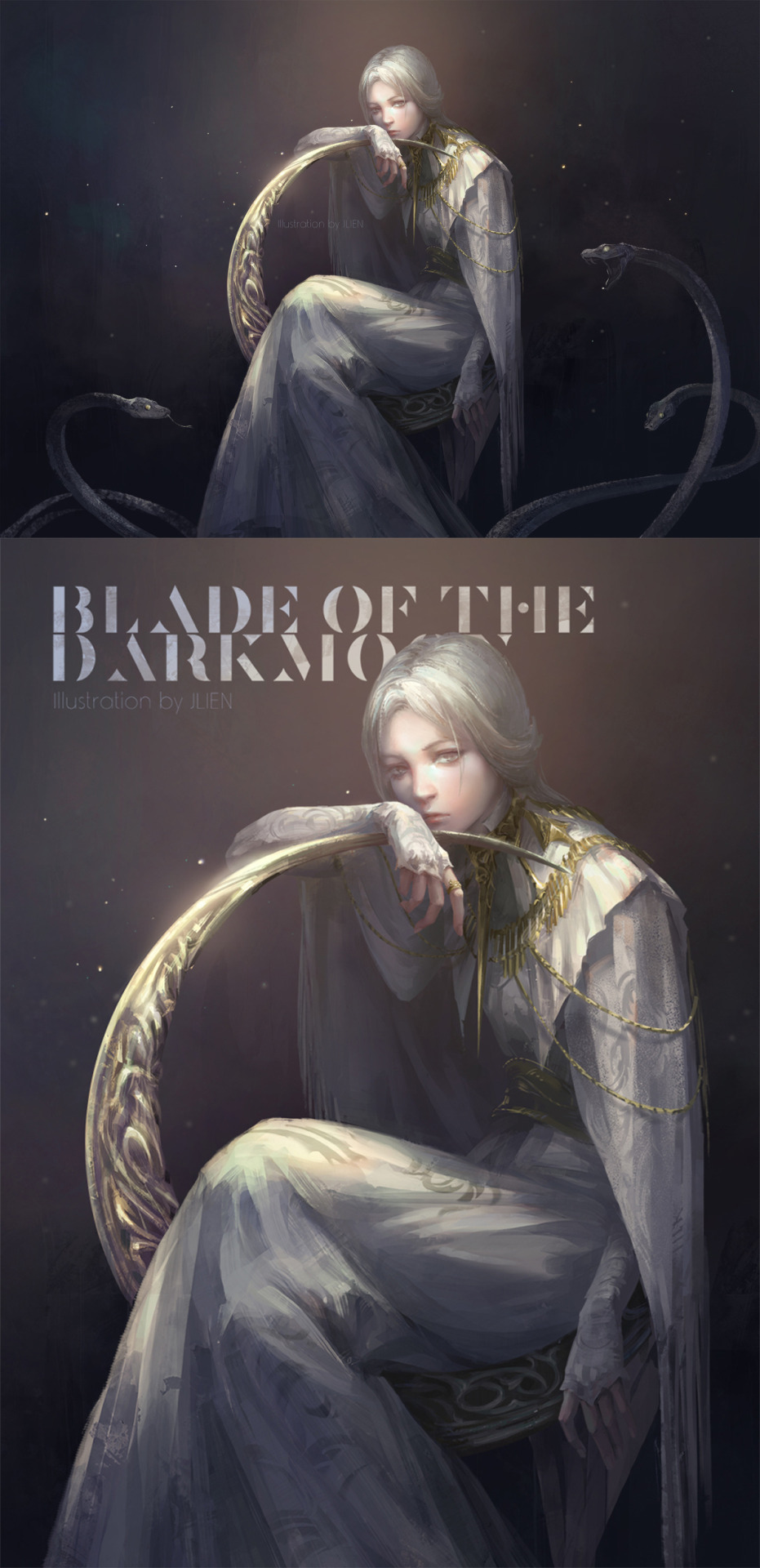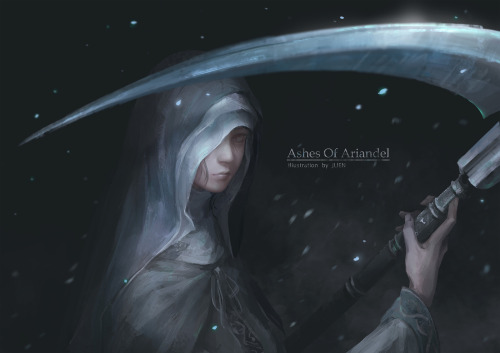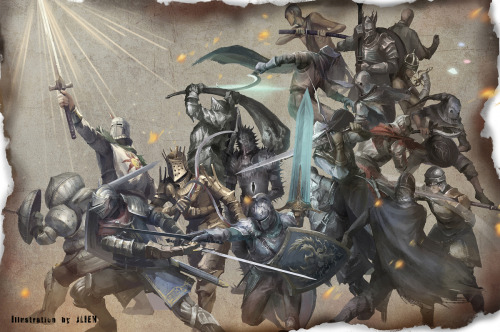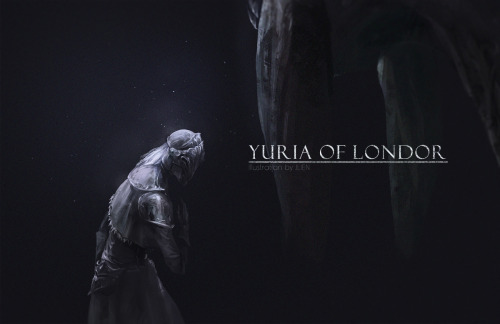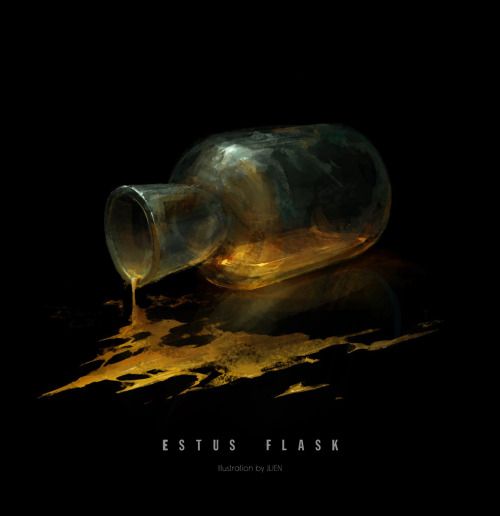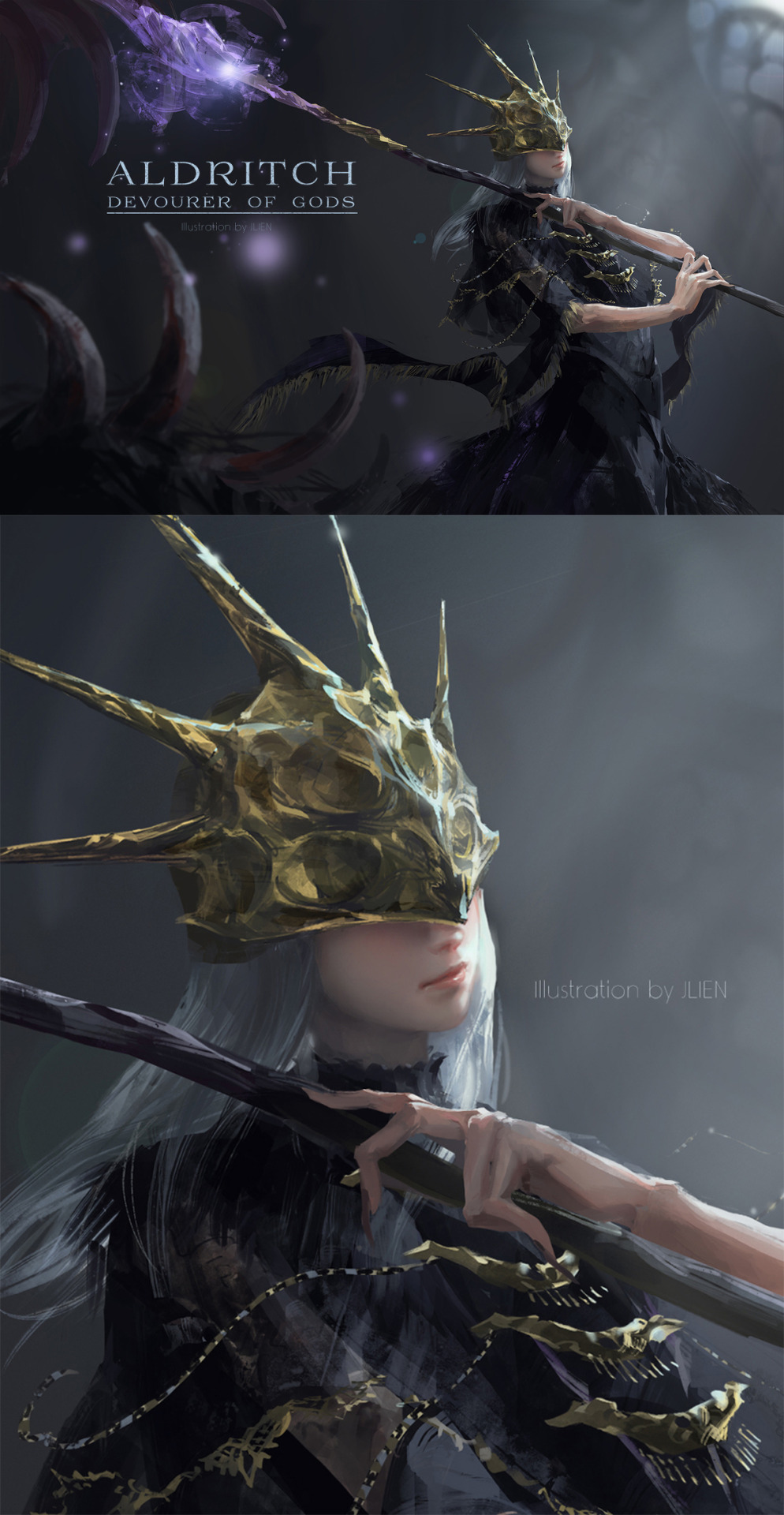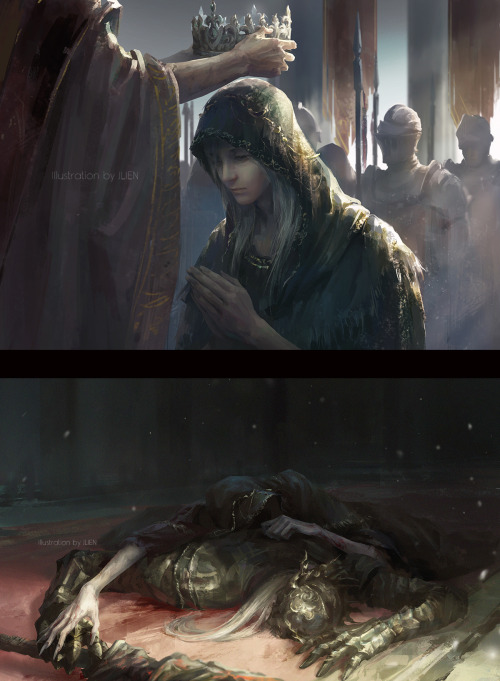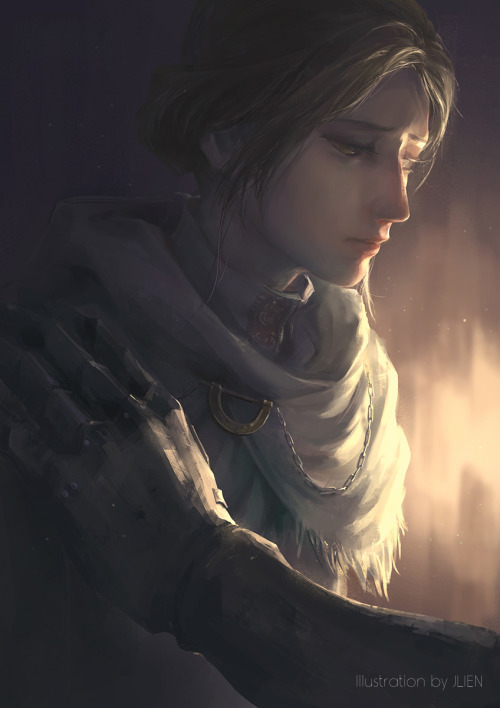How To Foreshadow
How To Foreshadow

Foreshadowing is a necessary part of any well-executed story. And yet, despite all its prevalence and importance, it’s actually a concept that many authors have a hard time getting their minds around. If we sift foreshadowing down to its simplest form, we could say that it prepares readers for what will happen later in the story.
At first glance, this may seem counter-intuitive. Why would we want readers to know what’s going to happen later in the story? If they know how the book turns out, they’ll have no reason to read on.
True enough. So let me reiterate. The point of foreshadowing is to prepare readers for what happens later in the story. Not tell them,just prepare them.
Foreshadowing’s great strength lies in its ability to create a cohesive and plausible story. If readers understand that it’s possible that someone in your story may be murdered, they won’t be completely shocked when the sidekick gets axed down the road. If, however, you failed to properly foreshadow this unhappy event,readers would be jarred. They would feel you had cheated them out of the story they thought they were reading. They would think you had, in essence, lied to them so you could trick them with this big shocker.
Readers don’t like to be cheated, lied to, or tricked. And that’s where foreshadowing comes into play.
Foreshadowing, Part 1: The Plant
We can break foreshadowing down into two parts. The first is the plant. This is the part where you hint to readers that something surprising and/or important is going to happen later in the book. If the bad guy is going to kidnap the good guy’s son, your plant might be the moment when your hero notices a creepy dude hanging around the playground. If your heroine is going to be left standing at the altar, your plant might be her fiancé’s ambivalence toward the wedding preparations.
Depending on what you’re foreshadowing, the plant can be blatant or subtle. Subtle is almost always better, since you don’t want to giveaway your plot twists. But, at the same time, your hints have to be obvious enough that readers will remember them later on.
Usually, the earlier you can foreshadow an event, the stronger and more cohesive an effect you will create. The bigger the event, the more important it is to foreshadow it early. As editor Jeff Gerke puts it in The First 50 Pages:
Basically, you need to let us in on the rules. If the climax of your book is going to consist of getting into a time machine and jumping away to safety, we had better have known in the first fifty pages that time travel is possible in the world of your story.
Foreshadowing, Part 2: The Payoff
Once you’ve got your plant in place, all that’s left is to bringthe payoff on stage. If you planted hints about kidnapping, jilting, or time travelling, this is the part where you now get to let these important scenes play out.
As long as you’ve done your job right with the plant, you probably won’t even need to reference your hints from earlier. In fact, you’re likely to create a more solid effect by letting readers put the pieces together themselves.
But you’ll also find moments, usually of smaller events that were given less obvious plants, that will benefit from a quick reference to the original hint (e.g., “George,you big meanie! Now I understand why you wouldn’t choose between the scarlet and the crimson for the bridesmaids’ dresses!”)The most important thing to remember about the payoff is that it always needs to happen. If you plant hints, pay them off. Just as readers will be confused by an unforeshadowed plot twist, they’ll also be frustrated by foreshadowing that excites them and then leads nowhere.
Foreshadowing vs. Telegraphing
The trick to good foreshadowing is preparing your readers on a subconscious level for what’s coming without allowing them to guess the ins and outs of the plot twist. You don’t want your hints to be so obvious that they remove all suspense. In her October 2012 Writer’s Digest article “Making the Ordinary Menacing: 5 Ways,” Hallie Ephron calls this “telegraphing”:
When you insert a hint of what’s to come, look at it critically and decide whether it’s something the reader will glide right by but remember later with an Aha!That’s foreshadowing. If instead the reader groans and guesses what’s coming, you’v etelegraphed.
Some clever readers will undoubtedly be able to interpret your hints, no matter how cagey you are. But if you can fool most of the readers most of the time, you can’t ask for more than that.
Foreshadowing vs. Foreboding
Foreboding—that skin-prickling feeling that somethinghorrible is going to happen—can be a useful facet of foreshadowing. By itself, foreboding isn’t specific enough tobe foreshadowing. Unlike the plants used for foreshadowing, foreboding is just an ambiguous aura of suspense. Jordan E. Rosenfeld describes it in Make a Scene:
[F]oreshadowing … hints at actual plot events to come, [but]foreboding is purely about mood-setting. It heightens the feeling of tension in a scene but doesn’t necessarily indicate that something bad really will happen.
Foreboding is useful in setting readers’ emotions on edge without giving them any blatant hints. But when it comes time to foreshadow important events, always back up your foreboding by planting some specific clues.Most authors have so intrinsic an understanding of foreshadowing that they plant it and pay it off without even fully realizing that’s what they’re doing. But the better you understand the technique, the better you can wield it. Using this basic approach to foreshadowing, you can strengthen your story and your readers’ experience of it.
Source x
More Posts from Othermanymore and Others
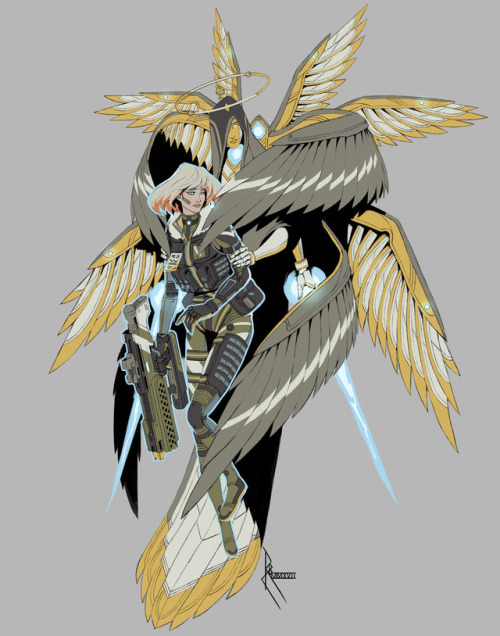
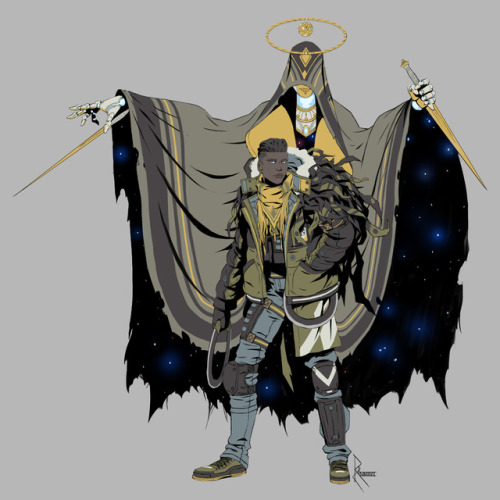
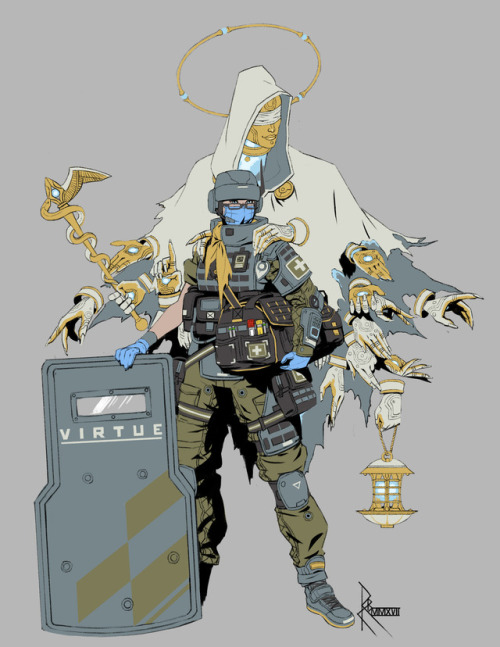

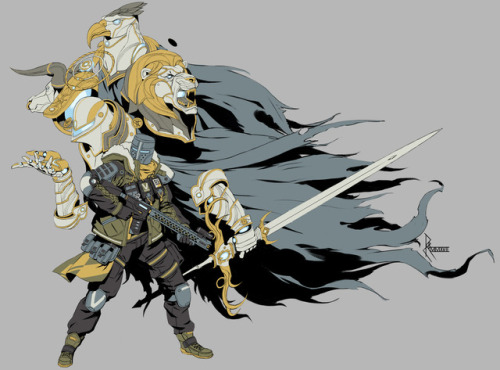
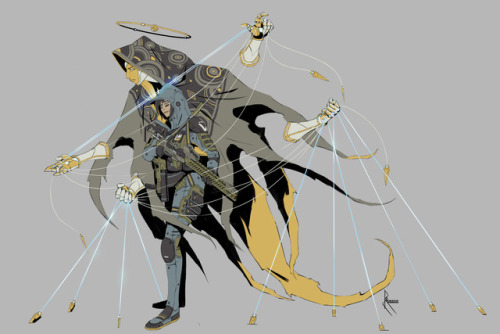
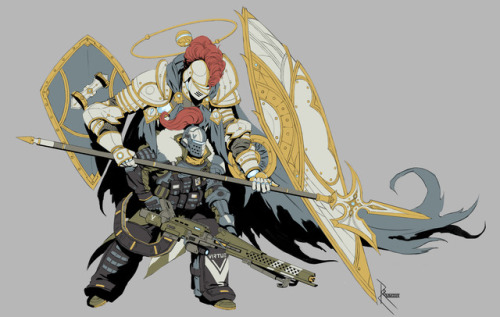
Agents of Virtue. Each agent is paired with an angel representing a virtue that helps them fulfill a specific role within their squad. Noble in their purpose and swift in their dealing of justice they maintain the balance between worlds.
1:Kindness, Powerful but frail magic user.
2: Humility. Stealth infiltrator/flanker
3: Charity. Support healer.
4: Chastity. CQC specialist.
5:Temperance. Strategists able to fill multiple roles.
6: Patience. DMR trapper/zone controller.
7: Diligence. Heavy support tank.
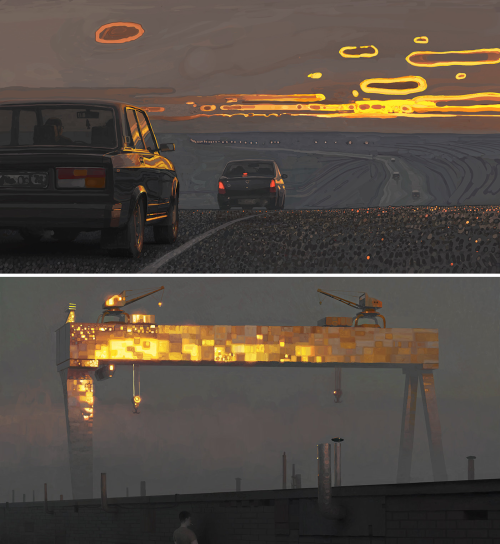
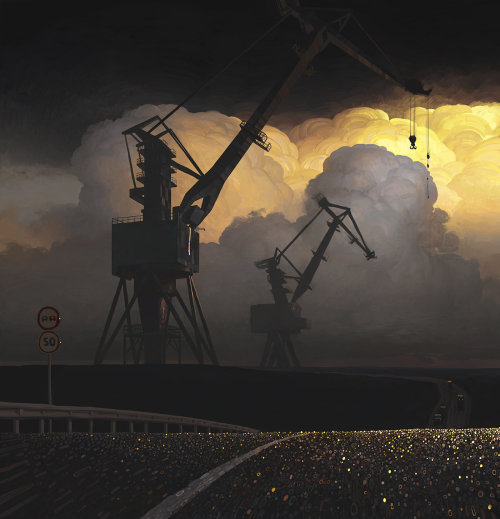
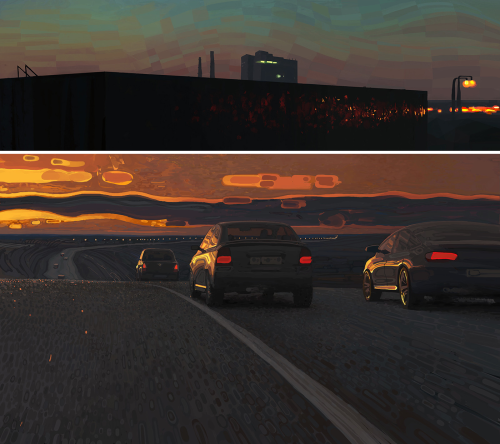
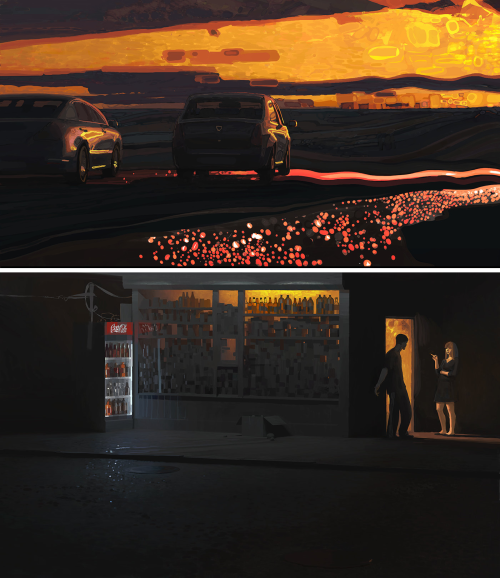
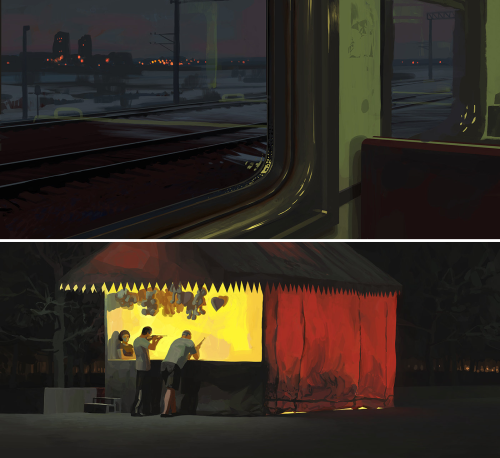
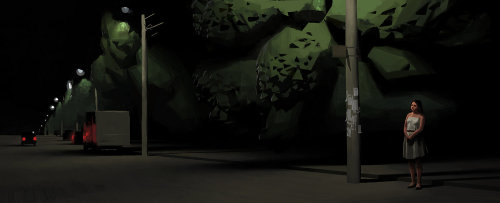
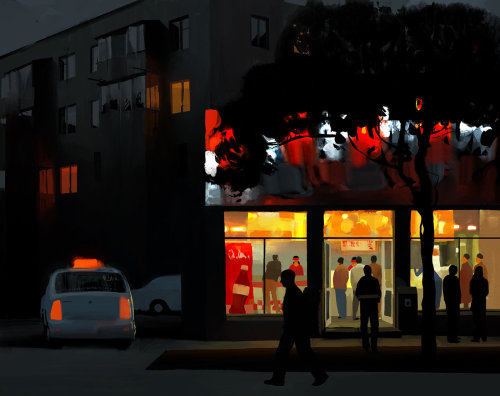

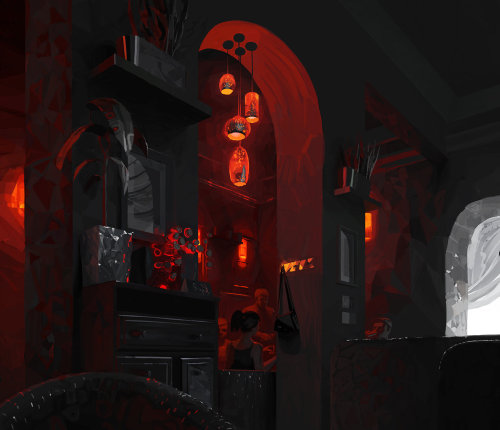
Andrey Surnov evening traffic 1 subway shipyard crane cranes evening traffic 2 evening traffic 3 night shop 1 6:00 AM shooting gallery dark street pizzeria night shop 2 red café
more art by Andrey Surnov
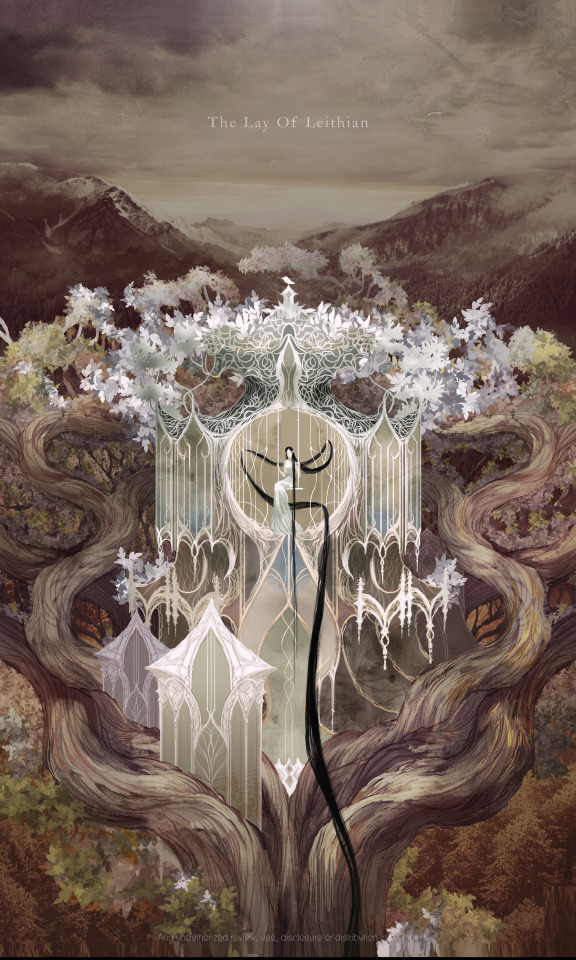
Among the tales of sorrow and of ruin that come down to us from the darkness of those days there are yet some in which amid weeping there is joy and under the shadow of death light that endure. And of these histories most fair still in the ears of the Elves is the tale of Beren and Luthien
Why do artists refuse to use references why why why.
It’s not a contest to see who can get by without them. It’s not cheating to look at a thing in order to know what the thing looks like.
You don’t get stronger or better by pretending. Nobody is impressed by the awkward whatever-it-is you just drew. Use references.
-
 princess45sworld liked this · 1 month ago
princess45sworld liked this · 1 month ago -
 0330amfics reblogged this · 1 month ago
0330amfics reblogged this · 1 month ago -
 heusbsn liked this · 1 month ago
heusbsn liked this · 1 month ago -
 spideronthesun liked this · 2 months ago
spideronthesun liked this · 2 months ago -
 ilightmytorch reblogged this · 2 months ago
ilightmytorch reblogged this · 2 months ago -
 sovvannight liked this · 2 months ago
sovvannight liked this · 2 months ago -
 minnsmittens liked this · 3 months ago
minnsmittens liked this · 3 months ago -
 eternalwriterofstories liked this · 3 months ago
eternalwriterofstories liked this · 3 months ago -
 hoshinohoshi reblogged this · 6 months ago
hoshinohoshi reblogged this · 6 months ago -
 hoshigumoko liked this · 6 months ago
hoshigumoko liked this · 6 months ago -
 exquisink liked this · 6 months ago
exquisink liked this · 6 months ago -
 valentydes liked this · 7 months ago
valentydes liked this · 7 months ago -
 pyrrha-nikos-one-woman-army reblogged this · 8 months ago
pyrrha-nikos-one-woman-army reblogged this · 8 months ago -
 pyrrha-nikos-one-woman-army liked this · 8 months ago
pyrrha-nikos-one-woman-army liked this · 8 months ago -
 frank1915 liked this · 10 months ago
frank1915 liked this · 10 months ago -
 thekittyisahoneybadger reblogged this · 10 months ago
thekittyisahoneybadger reblogged this · 10 months ago -
 theactualjstern reblogged this · 10 months ago
theactualjstern reblogged this · 10 months ago -
 heyhayehey reblogged this · 11 months ago
heyhayehey reblogged this · 11 months ago -
 heyhayehey liked this · 11 months ago
heyhayehey liked this · 11 months ago -
 vitadulcedospes liked this · 11 months ago
vitadulcedospes liked this · 11 months ago -
 heckcareoxytwit reblogged this · 1 year ago
heckcareoxytwit reblogged this · 1 year ago -
 blooranje liked this · 1 year ago
blooranje liked this · 1 year ago -
 haleyshelby liked this · 1 year ago
haleyshelby liked this · 1 year ago -
 daratheuncrowned liked this · 1 year ago
daratheuncrowned liked this · 1 year ago -
 adeliers reblogged this · 1 year ago
adeliers reblogged this · 1 year ago -
 mc-goober reblogged this · 1 year ago
mc-goober reblogged this · 1 year ago -
 write-101 reblogged this · 1 year ago
write-101 reblogged this · 1 year ago -
 c0pycatki11er reblogged this · 1 year ago
c0pycatki11er reblogged this · 1 year ago -
 owlspirit liked this · 1 year ago
owlspirit liked this · 1 year ago -
 julevanwilde reblogged this · 1 year ago
julevanwilde reblogged this · 1 year ago -
 dujeuu liked this · 1 year ago
dujeuu liked this · 1 year ago -
 glvlvukcan liked this · 1 year ago
glvlvukcan liked this · 1 year ago -
 lazy-berry liked this · 1 year ago
lazy-berry liked this · 1 year ago -
 maideninorange reblogged this · 1 year ago
maideninorange reblogged this · 1 year ago -
 yukarinuniversaltraveler reblogged this · 1 year ago
yukarinuniversaltraveler reblogged this · 1 year ago -
 yukarinuniversaltraveler liked this · 1 year ago
yukarinuniversaltraveler liked this · 1 year ago -
 tsubakura-enraku reblogged this · 1 year ago
tsubakura-enraku reblogged this · 1 year ago -
 nerdy-chocomallow liked this · 1 year ago
nerdy-chocomallow liked this · 1 year ago -
 piictochat liked this · 1 year ago
piictochat liked this · 1 year ago -
 aaustinwrites reblogged this · 1 year ago
aaustinwrites reblogged this · 1 year ago






